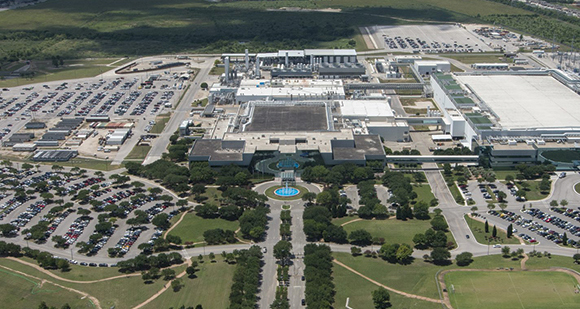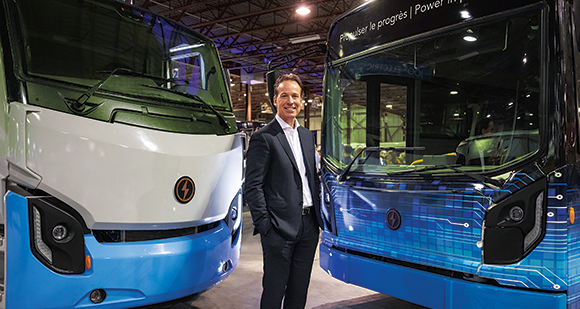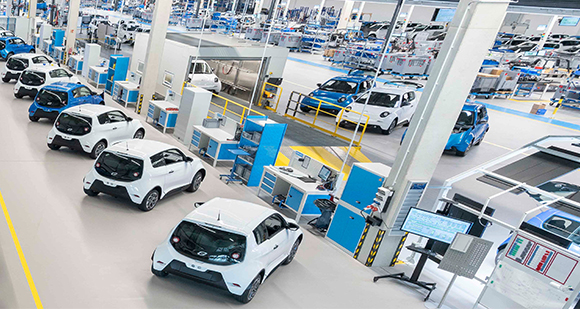|
  
|
FROM SITE SELECTION
MAGAZINE, SEPTEMBER 2021 ISSUE
|
 |
TEXAS
A Point/Counterpoint Examination of an Incentive
|
|
|
|
 |
INVESTMENT PROFILE: HOOSIER ENERGY
The I-74 corridor southeast of Indianapolis gets in on the region’s
logistics action.
|
|
  |
Morocco
Advanced composites company Hexcel Corporation early this month
announced an expansion at its existing engineered core facility in
Casablanca, Morocco, at the Midparc Free Trade Zone Industrial Park that
will double the size of the plant to 24,000 sq. m. (258,342 sq. ft.) and
increase employment from 120 to about 400 people. Hexcel’s plant
transforms lightweight honeycomb materials into engineered core parts to
reinforce aerospace structures. Hexcel broke ground on the site in 2016
and celebrated its grand opening in March 2018. “Today, Hexcel confirmed
its decision to invest in Morocco, like many players in the aerospace
sector such as our Midparc neighbors and customers including Stelia
Aerospace (Airbus), Safran, and Spirit AeroSystems,” said Thierry
Merlot, Hexcel president – Aerospace for Europe, MEA/AP & Industrial, on
September 1. “Key factors in our decision to expand the Casablanca site
included the highly skilled workforce in the area, support from the
state, and proximity to our customers.”
Brazil
Driven by booming demand for pectin fueled by global trends around sugar
reduction and label-friendly formulation, as well as the popularity of
fruit-flavored dairy drinks, Cargill has launched operations at this new
high-methoxyl (HM) pectin plant in Bebedouro. The site is located in the
heart of Brazil’s citrus-growing region, enabling plentiful supply of
fresh fruit peels. The site joins three other Cargill pectin plants in
Redon, France; Malchin, Germany; and Milazzo, Italy. According to the
2019 Global Trade Atlas, pectin market demand is projected to grow at a
minimum of 3% CAGR from 2019 to 2025, most strongly in the spoonable
non-dairy yogurt; drinking yogurt/fermented beverages; and
gummies/jellies categories. “Adding a fourth pectin production facility
to our supply network further secures our position as a reliable
supplier of this sought-after ingredient and helps us deliver against
consumer’s demands and our customers’ needs,” said Laerte Moraes,
managing director.
|
|
  |
|
ILLINOIS INVESTMENT
GUIDE 2021/22
|

|
BUSINESS LANDSCAPE
Home to 38 of the FORTUNE 500, Illinois is No. 3 in the nation for
corporate headquarters.
|
|
 |
TALENT & WORKFORCE
Pioneering workforce development programs aim to be right on time for
tomorrow’s technologies.
|
|
 |
AGRIBUSINESS
The cannabis industry is on track to revolutionize the Illinois
agribusiness sector.
|
|
|
SITE SELECTION
RECOMMENDS
|
|
Late last Thursday afternoon, open season began in the hunt for a $3
billion steel plant, as U. S. Steel announced a site selection process
to “expand its mini mill steelmaking advantage.” The three-million-ton
operation would incorporate two electric-arc furnaces (EAF). “Potential
locations include both states in which the Company has existing EAF
operations as well as greenfield sites,” said the company. Those two EAF
sites are in Osceola, Arkansas (Big River Steel), and Fairfield,
Alabama. Osceola steelmaking investment was one reason Blytheville, Arkansas, earned the 2020 Great River
Cup from Site Selection, years after the initial Big River Steel investment. “Final site
selection and other construction terms are subject to a number of
factors, including state and local support and final approval by the U.
S. Steel Board of Directors,” said the company release. “Upon receipt of
required environmental and operating permits, the company would expect
to begin construction of the mini mill in the first half of 2022 with
production currently expected to begin in 2024.”
|

|
A proposed $3 billion mini mill for which U.S. Steel is now
searching for a site would employ two electric-arc furnaces like
this one at the company’s operations in Fairfield, Alabama.
Photo courtesy of U.S. Steel
|
|
|

|
Photo courtesy of Next.e.GO Mobile
SE
|
|
“Disruptive and highly connected” is how German battery electric vehicle
(BEV) maker Next.e.GO Mobile SE describes its micro factories. The
company calls this original Industry 4.0 factory in Aachen, Germany the
“first of its kind fully connected micro factory in the BEV industry,”
leveraging internet of production architecture and advanced automation.
In July, the company announced it would build its second micro factory
in Lovech, Bulgaria, which will be designed to be a “cyber-physical
twin” of this facility in Aachen and will employ up to 1,000 people.
Aachen is Germany’s westernmost city, located near borders with
Netherlands and Belgium.
|
|
|
|

